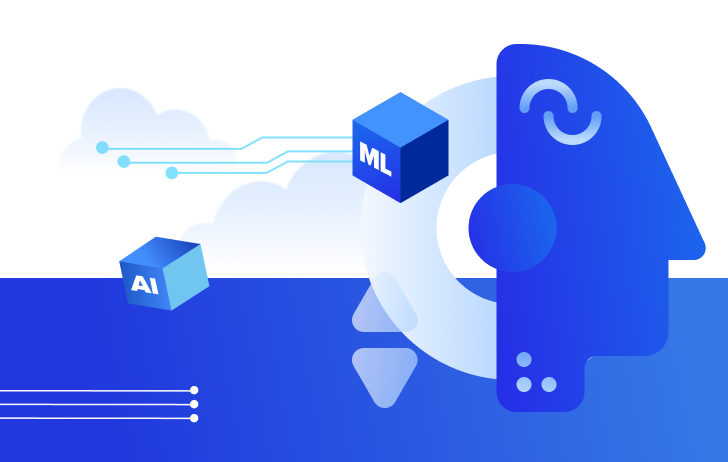Software Execs: AI/ML Projects Not Meeting Your Expectations? We Know Why!

When it comes to AI/ML overall, there’s no shortage of research about where and how executives and technology leaders use it to boost their business. Case studies appear daily about successful applications of neural networks and deep reinforcement learning, among other exciting AI/ML technologies, solving real-world problems.
How, though, is AI/ML used to drive your business outcomes?
Recent research shows that software company executives believe AI/ML is imperative for them to compete and grow. The same study reports AI/ML initiatives fall short of their expectations (97%). The Real State of AI/ML in Software and Digital Native Companies, Wakefield Research for SoftServe Inc., February 2023).
By far, the data shows IT is the primary influencer in AI/ML investment, and IT experimentation and innovation are the principal drivers in AI/ML investment.
Product management is less influential in AI/ML investment than IT. Why?
 |
 |
 |
More AI/ML experimentation focuses on internal capabilities, not product capabilities. |
Product management isn’t pursuing product innovation best addressed with AI/ML technology. |
IT pushes harder for AI/ML investments, overpowering product management. |
For AI/ML to succeed in software companies, AI/ML innovation ownership must shift from IT to product management. That way you apply AI/ML technologies with the same product management rigor as technologies that support business processes and customer experience features.
AI conundrum

With signs of AI/ML technology maturing across the board, many software companies — both independent software vendors (ISVs) and digital native businesses (DNBs) — miss the genuine business value and affect this technology offers them like to:
- Forecast their business conditions and revenue.
- Predict when their customers are ready to buy.
- Prescribe practical actions to quicken their time to market.
- Deepen their levels of customer personalization and engagement.
Instead, AI/ML is used to emphasize experimentation, testing, and proof of concept — or what we simply call “science projects.” They’re figuring out what’s possible, without first figuring out what the market or their customers need. Primarily, AI/ML is a way for these companies to attract and keep IT talent, not align it to business goals.
“It doesn't matter how good your engineering team is if they are not given something worthwhile to build.”
— Marty Cagan, product management guru, from his book “Inspired”
Real state of AI/ML
SoftServe set out during fall 2022 to gather data and give insights into the ground-level state of AI/ML in software companies. As a trusted partner of clients that apply AI/ML to achieve genuine business value, our study mission was to:
 |
 |
 |
Dig into what drives current investment in AI/ML by companies most likely to inspire innovation in the technology: ISVs and DNBs. |
Discover how those companies measure their own success. |
Observe the most important bellwether of any tech’s business maturity — the creation of new revenues. |
Our global study, conducted by independent research firm Wakefield Research, found that, while AI/ML as a technology is ready for prime time, business processes that drive AI/ML investment lag in maturity.

Some study findings include:
- Many initiatives launched and owned by IT were proof-of-concept “science projects” rather than mature, strategy-aligned, objectives-defined, disciplined product roadmap management as applied to other product investments.
- Most respondents admit they view AI/ML projects as a tool for appealing to the interests of highly skilled IT talent as nearly as important as driving business results.
- Because of a lack of business discipline behind AI/ML investment, software publishers’ AI/ML efforts still fall short of leader expectations.
- Yet proper expectations can’t be set because leaders don’t understand the application and potential of the technology.
Rise to the challenge
The lack of strategic alignment and business processes is the Achilles’ heel of AI/ML. Not the technology.
So, here’s a challenge. Product management owns all feature functionality for everything else done at your software company. Why not let product management lead AI/ML to monetize product innovation?

If you accept this challenge, you will find your organization delivers better product features that create customer value. Your IT team will also have more time to focus on internal technology projects to grow your business.
Get the complete global study here, along with recommendations for you to consider, so you can truly take advantage of AI/ML capabilities to better compete and grow.

